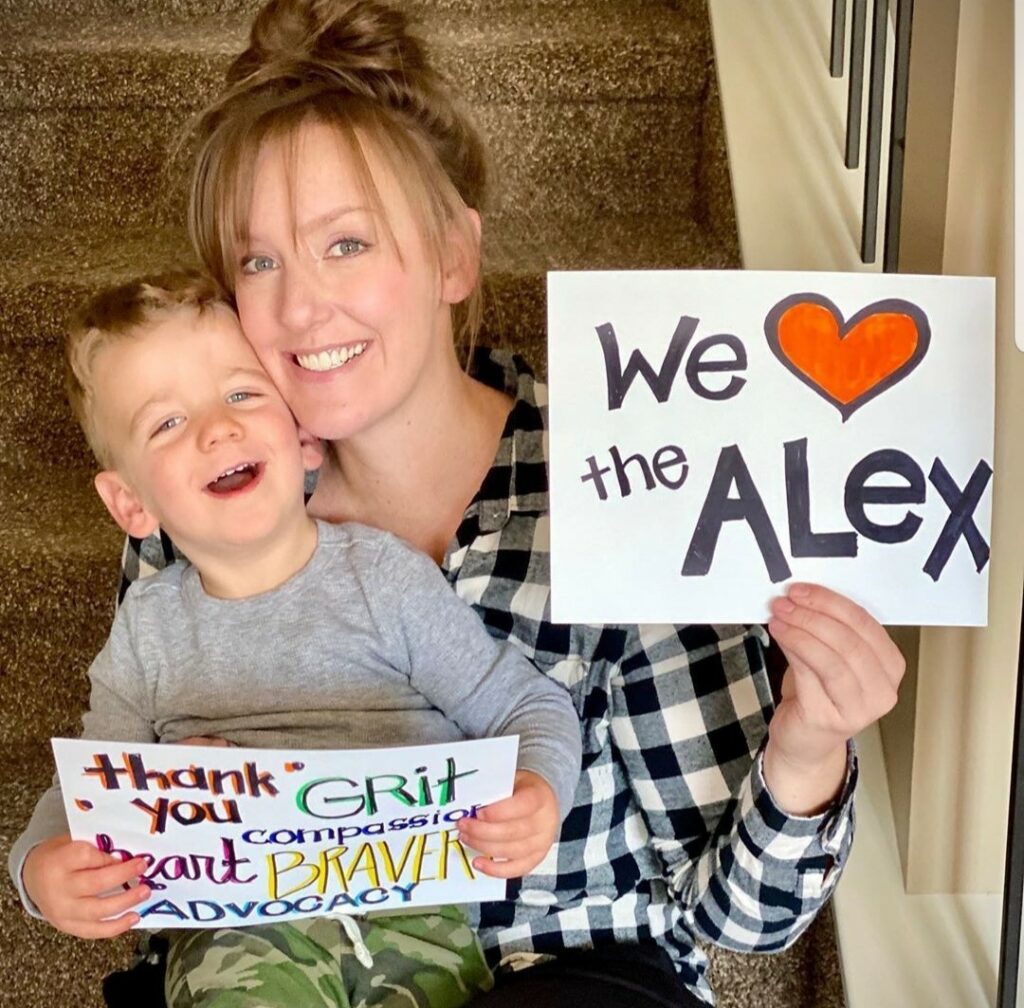
Kim Sikora is the Program Lead at Pathways to Housing. She makes incredible Hallowe’en costumes.
“What do you do for a living?”
I always find this a difficult question to answer. Mental health worker, manager, teammate, toilet cleaner, chauffeur, funeral planner, chronic crier, bed bug inspector, mover, system navigator, de-escalator, and advocate are just a few of the hats I am blessed to wear in a role I have so proudly held for the past eight years. By a stroke of good luck, I joined Pathways to Housing with The Alex in 2011, and I truly cannot imagine myself anywhere else.
Pathways to Housing supports individuals who have experienced chronic homelessness and have persistent psychotic illness. We provide subsided housing and a one-stop-shop team of professionals including mental health clinicians, social workers, psychiatrists, physicians, nurses, recreation and occupational therapists and peer support. One of the great joys of my work is bringing humanity to even the most mundane of interactions. Our beloved participants have experienced the trauma of marginalization in a society in which they do not easily fit in.
With the lightning fast rise of COVID-19 in Alberta, basic gestures of connection like shaking hands, sharing a coffee, and taking my shoes off when I am welcomed into a person’s home are off the table. Now, we call in advance to quiz for worrisome symptoms. We wear mandatory PPE for the brief amount of time we spend in a participant’s home. The essence of human connection like a shared smile or hearty laugh is now hidden behind surgical masks that proclaim “you are not safe and neither am I!” What is this bizarre reality and when will it end already?
One of the great joys of my work is bringing humanity to even the most mundane of interactions. Our beloved participants have experienced the trauma of marginalization in a society in which they do not easily fit in.
In Pathways, we joke that hiring new staff feels like getting married after a single blind date. I have come to learn that almost all skills are teachable but there is an “x-factor” for success in this line of work that cannot be learned: the core belief that our participants are worthy of love, even when they are at their most unwell. If I can feel this beautiful quality in a candidate, then anything is possible.
It is this very belief that lends to the greatest pain for my colleagues during the pandemic. Our participants, who we love and care for so deeply, are lacking the vital connections that help keep them well. The confusing web of protocol that dictates our “new normal” is furiously challenging the very values that call us to do this meaningful and important work.
Pathways core values redefined:
- Humanity: Each person for themselves (e.g., hoard the toilet paper).
- Grit: Only if you have full PPE and this week’s surgical masks are from the decent supplier.
- Growth: Another “Zoom” webinar.
- Excellence: Impossible unless your daycare is open and your therapist offers sessions after 11pm.
- Connection: Do we have hand sanitizer that doesn’t smell like tequila and is the wifi working today?
Now, our world, where we once worked so tirelessly to cultivate connection, create safety, reduce anxiety, and promote integration is screaming from isolation, mistrust, and fear. The impact on individuals who already struggle with psychotic illness and disconnect is terrifying and our tender service provider hearts are broken.
Our days were often overwhelming and wrought with ethical dilemmas pre-pandemic. To support our own wellness, we wove in rituals like in-person debriefs, office candy jars, and team bonding activities to bring joy and relief. Now, many of our meetings are virtual and seeing more than one real face at a time in the office feels like winning the lottery…especially a face without a mask on. We used to have in-person contact with many participants in a day. Now I am lucky if I bump into one or two. We often feel overwhelmed by the obstacles preventing us from doing our work in the way we know how to do it best.
Our work is only a sliver of our identities. I am surrounded by real humans who have real responsibilities and consequently, very real problems. Parents, partners, caregivers, students. Bills to pay, pre-existing health conditions, reliance on public transit, separation from loved ones by border restrictions. Trips cancelled, weddings cancelled, funerals cancelled. Grief, loss, and more grief.
The great privilege of this work is bearing witness to the resilience of both the participants and the staff.
Over the past three months I had to beg staff to take time off from work. Everyone shows up. There is creativity, initiative, dedication, and commitment. Those giant, loving hearts that created conviction resulting in a job offer in the first place, are bursting with compassion and an unflappable drive to make the lives of our participants as safe and as stable as possible even when their own worlds are in complete disarray.
This pandemic has created lasting change in us all. I will no longer take for granted the beauty of a hug, the warmth of a smile, or the availability of hand sanitizer that did not come from a distillery. My greatest lesson is that even in the most difficult of seasons, I am surrounded by kindness. I am lifted up by colleagues who risk their own wellness to ensure the needs of our most vulnerable are met. I am comforted by participants who fret over the wellbeing of their service providers.
